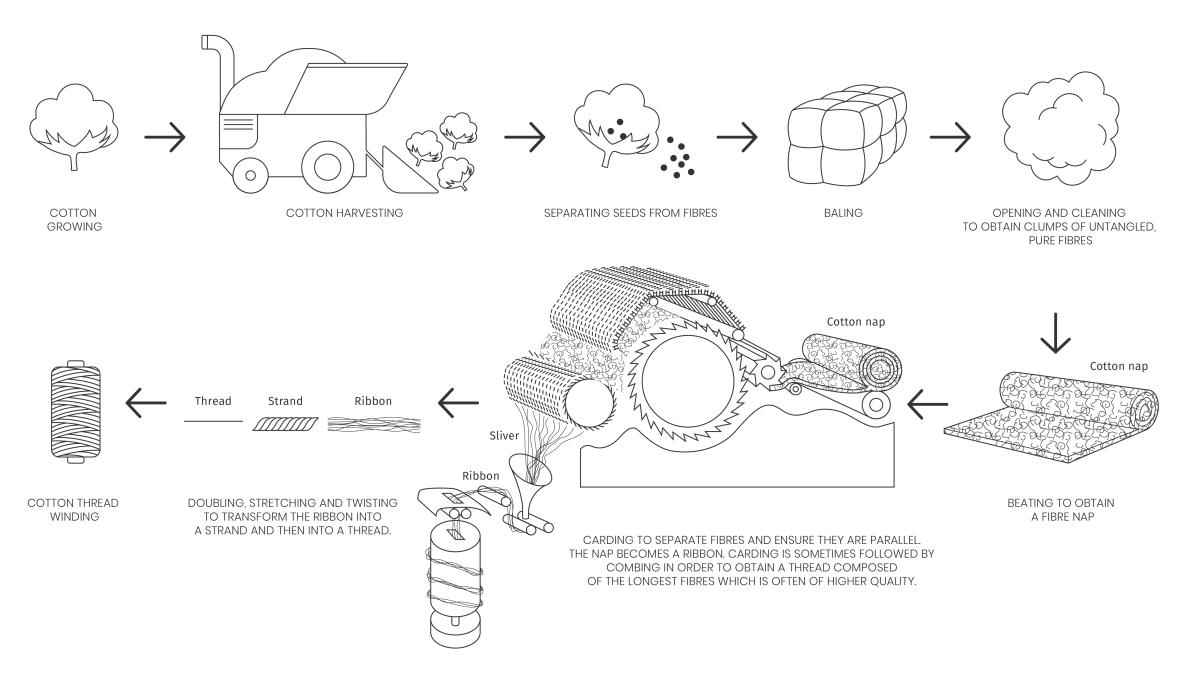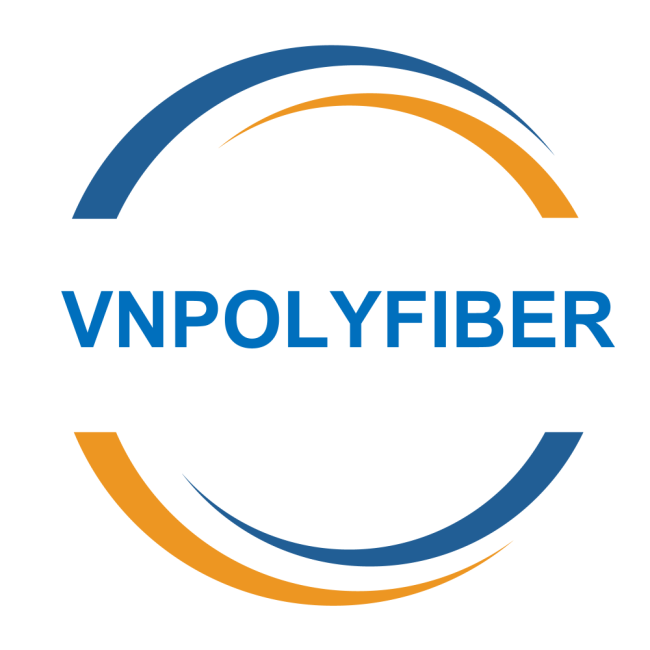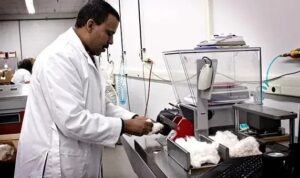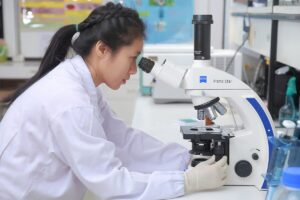What is cotton fiber?
Cotton fiber is of natural and plant origin. It is produced by a plant called the cotton plant which, after flowering, produces a capsule, known as a boll, containing seeds and fibres. These fibres are collected then used by the textile industry.
The properties of cotton fiber are numerous : Softness – Hypoallergenic – Resistance – Lightness – Absorption capacity – UV resistance.
Cotton is used in :
- clothing for babies, owing to its softness and hypoallergenic properties.
- jeans, owing to its resistance.
Can cotton be recycled? Yes, cotton-based products can be recycled mechanically (tearing, shredding, garnetting, fibre removal) or chemically (enzymatic dissolution).
Cotton is more expensive, but polycotton is way more durable and long-lasting. Cotton tends to be softer, but polycotton brings a crisp and clean feel to your bedding.
Cotton feels softer on your skin, but polycotton feels crisp and fresh on your bed. Cotton is less strong and more likely to tear, whereas polycotton is a much stronger material, less likely to tear.
Cotton is also notoriously awkward to keep clean. It requires lower temperatures, meaning a less thorough wash and is considerably more difficult to iron. Polycotton however, can be washed a temperatures up to 60°, meaning a much cleaner wash. It can be tumble dried without any problems and is much easier to iron. Combining cotton and polyester makes the garment less prone to piling and static. One of the main advantages of the cotton-polyester blend is that it is more wrinkle-free.
Production process of cotton fiber
- The cotton plant is firstly grown and its flower harvested.
- Once the fibres are separated from the seeds, they are baled.
- Fibres are cleaned and untangled. A cotton nap is produced.
- This nap then follows the stages of spinning to obtain a thread: carding, combing, doubling, drafting, twisting.
- The cotton thread is wound around a spool and is ready to be used to produce fabric or knitwear for example
COTTON PRODUCTION DIAGRAM

ORGANIC COTTON
Organic cotton is produced and certified according to organic agricultural standards. Its production supports the wellbeing of soils, ecosystems and man by using natural processes as opposed to artificial inputs. Cultivating organic cotton does not permit the use of toxic chemical products and Genetically Modified Organisms (GMO).
Organic cotton production combines tradition, science and innovation in order to benefit from a shared environment and promote a good quality of life for all of the persons involved. Certain labels affixed to products namely certify that the products are composed, at least partly, of organic cotton. These labels namely include the European Ecolabel, Global Organic Textile Standard or BioRe. To find out more, consult the cheat sheet on Product Communication and Labels.
BCI COTTON
Better Cotton Initiative is a non-profit making organisation which promotes sustainable and responsible production standards for cotton growing in 21 countries and among 2 million farmers. The initiative currently represents approximately 19 % of global cotton production.
Among the production principles and criteria, BCI namely encourages the minimisation of the harmful impacts of crop protection practices, the implementation of a good management system, the monitoring of soil wellbeing, the improvement of biodiversity thanks to responsible land management, the preservation of fibre quality and the encouragement of decent employment in order put in place an effective management system.
RECYCLED COTTON
Recycled cotton is a material resulting from used clothing recycling (known as post-consumer) or from production off-cuts (known as pre-consumer).
Cotton can be recycled both mechanically and chemically. In addition to being used to recreate thread, there are numerous outlets for recycled cotton: paper-making, professional or household cleaning cloths, transformation into unwoven fabric or into fuel.
- Mechanical cotton recycling: to create a cotton thread via a mechanical recycling process, materials must firstly undergo fibre removal (stretched to recover the fibres). Given that mechanical fibre removal can and shorten fibres and make them fragile, they are often blended with virgin cotton or polyester to given them more resistance. Following this, fibres are ready to undergo a classic spinning process.
- Chemical cotton recycling: to create a cotton thread via a chemical recycling process, materials undergo enzymatic dissolution. This is an enzymatic treatment which decomposes polymers. Following treatment, the cellulose monomers are regenerated in order to re-form a filament. The filament can then undergo a classic spinning process.
Hotel Stripe Polyester Cotton Bed Linen
Satin Stripe (or ‘Hotel Stripe’) Pillowcases & Duvet Covers in Double or King Sizes. Made from durable, 200 thread count polycotton (50% cotton, 50% polyester), these stylish Satin Stripe (sometimes called ‘Hotel Stripe’) duvet covers and matching pillowcases bring a touch of hotel luxury to your home, guest house or B&B
Buy Cotton Bedding
Cotton has been the staple of bedding for many a generation and offers warmth, softness and a cozy feel. All good! The problem is, it’s a bit pricey and takes some effort keeping it clean and fresh.
100% cotton bedding one of life’s luxuries!
On average, we spend about a third of our lives in bed. It’s so important to make sure our sleeping time is as restful as possible. The range of 100% cotton bedding can give you a cozy nights’ sleep at a very affordable price! Whether you’re looking for just a cotton pillowcase or a matching cotton bedding set, you can be sure you’ll find just the right bedding, right here!
100% cotton bedding are perfect for your home, also for you guest house, B&B or hotel. We like simple white cotton bedding. Crisp, clean and fresh, few things feel quite as 100 cotton bedding. Treat yourself (or your guests) to a better night’s sleep!
POLYCOTTON
Polycotton is the abbreviation for a polyester/cotton blend. It’s the blend which is the most frequently encountered. This blend can be blended as an intimate blend, by thread assembly or within the fabric structure. By combining cotton and polyester, this blend enables a material with numerous properties to be obtained:
Resistance – Crease resistance – Dimensional stability – Absorption capacity – Ease of care – Comfort
It is obviously possible to blend recycled polyester with recycled cotton to reduce the material’s environmental impact.
Polycotton is Strong & Durable
Polycotton is a highly durable material as Polyester contains strong plastic-like substances, making it far less likely to rip or tear. The durable nature of Polycotton makes it an very popular choice in commercial situations such as hotels, where bed sheets are often changed often.
Polycotton is a blend of natural cotton and synthetic polyester. Both Cotton and Polycotton bed sheets are easy to care for, both types of fabric can be washed on normal cycles in your washing machine and can be dried in the dryer. It is advised to wash cotton at lower temperatures (around 30° or 40°) however Polycotton can be washed at higher temperatures – up to 60° – for ultimate cleanliness. Washing natural fabrics like cotton 60 degrees may (most likely, will) cause them to shrink, however polycotton will not. That said, there are a number of types of cotton and polycotton, so always follow the manufacturer’s guidelines when washing and drying your sheets and bed linen.




